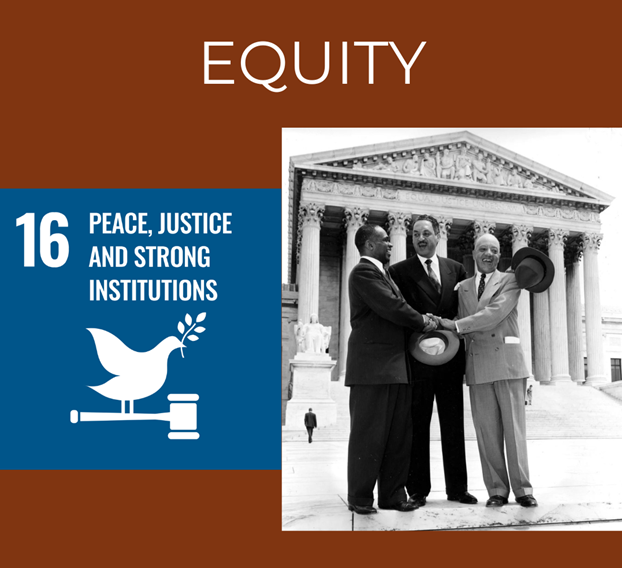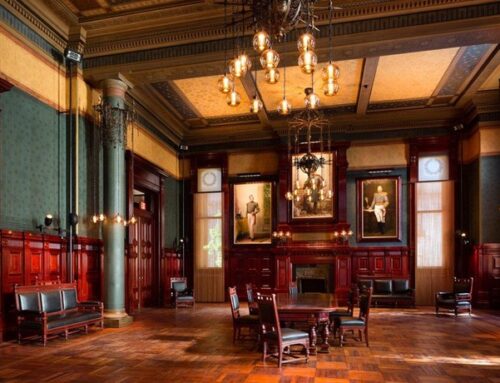UN Sustainable Development Goal 16 is officially worded: “Promote peaceful and inclusive societies for sustainable development, provide access to justice for all and build effective, accountable and inclusive institutions at all levels.” The Goal has 12 targets and 23 indicators.
The strengthening of national institutions to prevent violence and combat crime and terrorism and promoting and enforcing non-discriminatory laws and policies are intertwined with the realization of SDG 16’s ten outcome targets: reduction of violence; protection of children from abuse, exploitation, trafficking and violence; promotion of the rule of law and ensuring equal access to justice; combating organized crime and illicit financial and arms flows, substantially reducing corruption and bribery; developing effective, accountable and transparent institutions; ensuring responsive, inclusive and representative decision-making; strengthening the participation in global governance; providing universal legal identity; ensuring public access to information and protect fundamental freedoms.
This iconic image features lawyers George EC Hayes, Thurgood Marshall, and James M. Nabrit following the Supreme Court decision in Brown v. Board of Education, case in which, on May 17, 1954, the Court ruled unanimously that racial segregation in public schools violated the Fourteenth Amendment to the Constitution which prohibits the states from denying equal protection of the laws to any person within their jurisdictions. Considered one of the most important rulings in the Court’s history, Brown v. Board of Education helped inspire the American civil rights movement of the late 1950s and ’60s with the decision declaring that separate educational facilities for white and African American students were inherently unequal. It thus rejected as inapplicable to public education the “separate but equal” doctrine, advanced by the Supreme Court in Plessy v. Ferguson (1896). Although the 1954 decision strictly applied only to public schools, it implied that segregation was not permissible in other public facilities.







